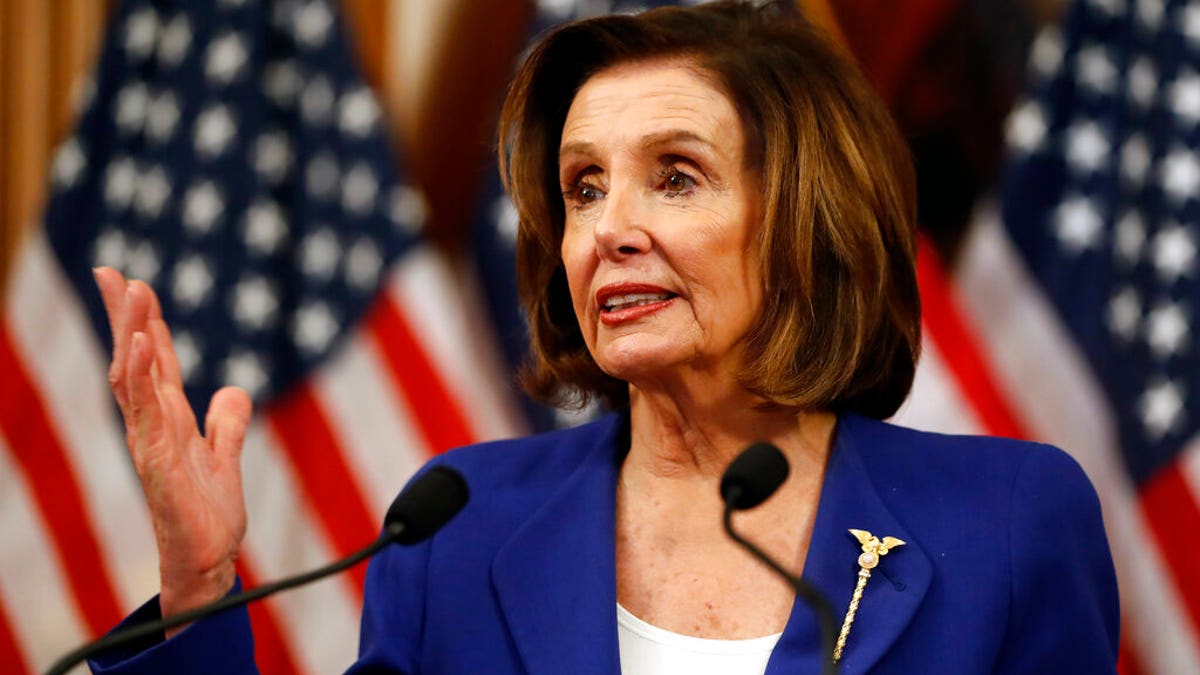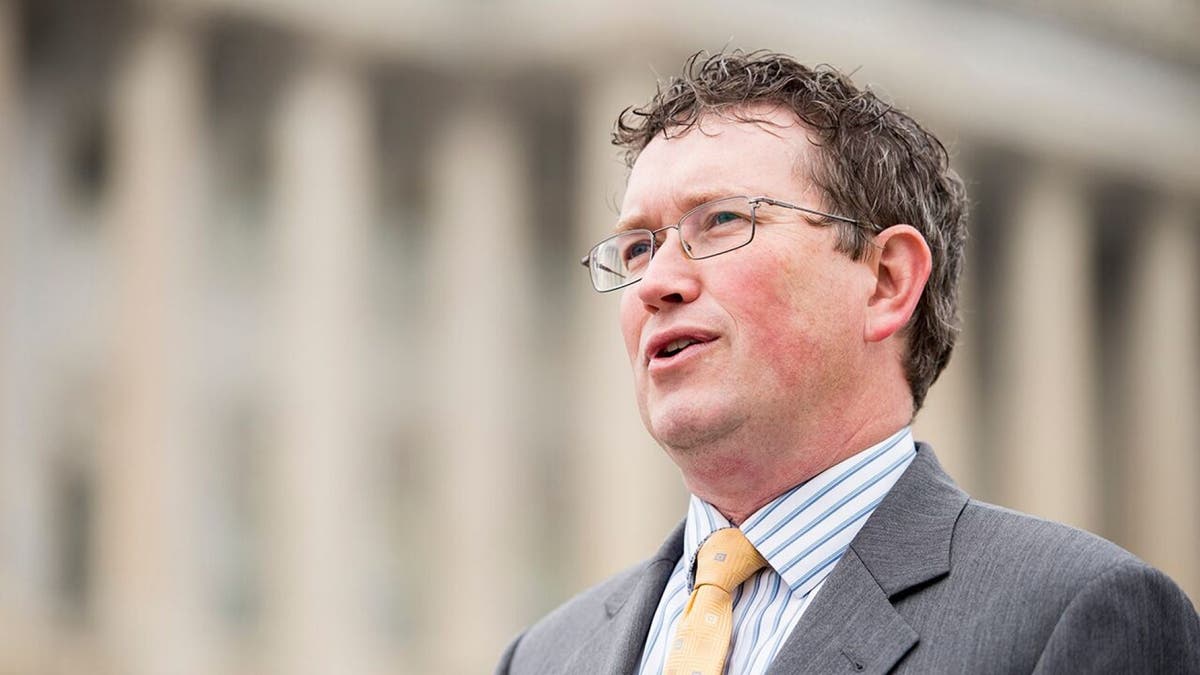How will the $2.2 trillion coronavirus stimulus affect you?
Economics experts Dagen McDowell, Mitch Roschelle, and Gene Marks answer questions.
Get all the latest news on coronavirus and more delivered daily to your inbox. Sign up here.
The U.S. government is poised to spend an unprecedented sum of money on its response to the coronavirus crisis, with a potential final price tag of nearly $5 trillion if lawmakers get the full extent of what they're seeking in as many as five separate bills.
While there is a bipartisan consensus on the need to help millions of laid-off or furloughed workers, as well as struggling hospitals and local governments, fiscal hawks are starting to raise alarms about the pace and scale of the spending by Congress and President Trump.
With three "phases" of the coronavirus response already passed, the U.S. government has so far committed roughly $2.4 trillion to relief efforts. But two more pieces of legislation are being discussed that could roughly double that, if the most expensive proposals are, in fact, signed into law.
For anyone short of Amazon CEO Jeff Bezos, the sum is so large as to be essentially inconceivable. But put into context, that would be more than the annual federal budget.
The $5 trillion number, adjusted for inflation, would also be more than five times the amount spent on the entire New Deal in the 1930s and just under three times the total cost of the Temporary Asset Relief Program (TARP) and the American Recovery and Reinvestment Act (ARRA) combined -- the two pieces of legislation enacted by the Bush and Obama administrations to pull the U.S. out of the 2008 Great Recession.
The counter-coronavirus spending is being done in a bipartisan manner with overwhelming support as few on either side of the aisle have brought up the potential fiscal impacts of the expenditures, despite the fact conservatives decried TARP and ARRA as wildly irresponsible deficit spending just a decade ago.

House Speaker Nancy Pelosi, D-Calif., speaks before she signs the Coronavirus Aid, Relief, and Economic Security (CARES) Act after it passed in the House on Capitol Hill, Friday, March 27, 2020. (AP Photo/Andrew Harnik)
DEMS BLOCK MCCONNELL BID TO SWIFTLY APPROVE $250B MORE FOR SMALL BUSINESS FUND
The initial coronavirus funding bill passed in early March -- as the seriousness of the crisis was beginning to dawn on President Trump and members of Congress -- cost $8.3 billion. The second phase, which was only scored by the Congressional Budget Office last week, cost $192 billion. And the third phase -- officially named the CARES Act and signed into law by Trump before the end of March -- cost a whopping $2.2 trillion.
There are some hiccups along the way to the next phase.
Senate Majority Leader Mitch McConnell, R-Ky., on Thursday tried to advance a stopgap proposal to infuse $251 billion in the popular small business assistance program from the CARES Act in what is essentially "phase 3.5" of Congress' coronavirus response. It was blocked by Democrats, and House Speaker Nancy Pelosi, D-Calif., has said that she wants $500 billion worth of spending in the interim package before dropping at least another $1 trillion -- and potentially much more -- on a "phase 4" coronavirus bill.
Trump has expressed a desire for the government to OK another $2 trillion for coronavirus relief, focused on infrastructure.
That means the federal government's total spending on its coronavirus response could reach $4.9 trillion.
The federal government spent $4.45 trillion in all during 2019. Another $5 trillion would be more than 20 percent of the total national debt, which is just over $24 trillion.
Some of the expenditures in the coronavirus response legislation are in the form of loans that could be paid back to the government, like TARP loans were during the Obama administration. Additionally, the stimulus measures are aimed at preventing an economic collapse resulting from the social distancing measures and forced closures meant to reduce the spread of the coronavirus -- a scenario that would contribute to the growth of the federal deficit due to lost revenues.

Rep. Thomas Massie, R-Ky., was the lone voice in Congress opposing the CARES Act. (Getty)
USUAL FISCAL HAWKS MUZZLED, MUTED AS CORONAVIRUS BILL POISED TO SWELL DEFICIT
But the approach nevertheless will see deficits swell and the debt grow in the near-term.
Fiscal hawks, who typically would be expected to raise hell over such spending approved so quickly by Congress, have largely been silent. This is due to the fact this spending was seen as instrumental in the government's response to a public health disaster. Outside of Rep. Thomas Massie, R-Ky. -- whose procedural tactics to delay the CARES Act in the House were steamrolled in one minute and three seconds -- most of the typical fiscal watchdogs have held their tongues or been muzzled by congressional leadership.
This is beginning to change, with the Committee for a Responsible Federal Budget, a federal spending watchdog organization, among the voices now speaking up.
"It feels like every day now, politicians are trying to use this national emergency to enact their favorite policies while avoiding paying for them," the group's president, Maya MacGuineas, said in a statement last week.
"Some infrastructure improvements could make sense in the next phase of economic relief legislation -- to take advantage of light use of infrastructure to undertake otherwise disruptive repairs, to assure states can continue to undertake scheduled projects when safe, and perhaps to help jumpstart the economy once we are past the current public health crisis," she continued.
MacGuineas added: "If the president and Congress want to work together on a massive infrastructure package, they should do so once they’ve effectively addressed the immediate crisis and they should fully offset the cost over time once the economy has recovered."
Romina Boccia, the director of the Heritage Foundation's Grover M. Hermann Center for the Federal Budget, criticized how some of the coronavirus relief spending up to this point has been allocated.
"The CARES Act also quickly got blown out of control," Boccia said. "Some of the programs weren't properly targeted. So, for example, the Paycheck Protection Program which Congress is considering today ... there's no provision that requires for loan forgiveness for businesses to actually have suffered any revenue losses. That's problematic because we should be targeting relief to businesses that are most affected by the crisis."
Further, the loans in that small business program will be converted to grants and fully forgiven if 75 percent of the loan is used to keep employees on the payroll. Boccia also said that though the stimulus relief Congress put in the CARES Act has some means tests, it is not targeted at people who have actually lost income, meaning people working from home making the same amount of money as before the pandemic can also get a check.
Another problem with the government's response, according to Boccia, are the unemployment provisions that may allow some workers to make more money by leaving their jobs than by staying employed, potentially slowing the economic recovery and making it tough for essential businesses to keep their doors open.
"So what we end up with is a lot more spending, including for people that can work from home, that haven't suffered financially," she said.
All this spending, according to Boccia, is leading to a projected $3.5 trillion deficit in 2020 that could increase if more legislation is passed -- money that will be added on to the already $24 trillion national debt.
"There's the real risk, of course, that we might be teeing up a public debt crisis on the other end of this," Boccia said, which could lead to increased taxes, difficulties providing public services, inflation and economic stagnation.
Rather than focusing on a potentially $2 trillion federal infrastructure bill, Boccia suggested that Congress first work on fixing the CARES Act -- particularly by rolling back the expansion of unemployment benefits -- and focus on containing the pandemic as quickly as possible so the economy can get back on track.
"That's what's causing the economy to be frozen right now, it's basically been mothballed," Boccia said. "We don't need Washington adding bad policies and putting us deeper and deeper into debt without any real benefit which is what this infrastructure proposal will do."
Members of Congress are beginning to pump the brakes too, with Sen. Ted Cruz, R-Texas, among a handful of Senate Republicans who have called for Congress to wait to see how the CARES Act is working before jumping into a "phase 4" bill.
CLICK HERE TO GET THE FOX NEWS APP
"We need to see what happens in terms of fighting the coronavirus in the next several weeks," Cruz said on Fox Business' "Mornings with Maria" late last month. "We need to allow the month of April to play out, and in this month of April, we need to be focusing our resources and energy on defeating the virus."
Massie, who was essentially the only voice in politics opposing the CARES Act but appears to be alone no longer in his calls for fiscal restraint, told Fox Business' Neil Cavuto on Wednesday that the solution to getting the economy up and running again is just that -- to get the economy up and running again.
"As long as the government gives away money, there's gonna be no lack of demand for that," Massie said of the small business loans. "What the government needs to do is allow people to go back to work."
Fox News' Marisa Schultz, Caroline McKee and Brooke Singman, as well as Fox Business' Evie Fordham, contributed to this report.













































